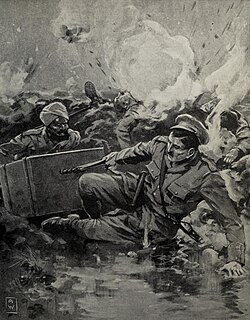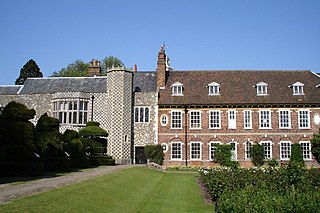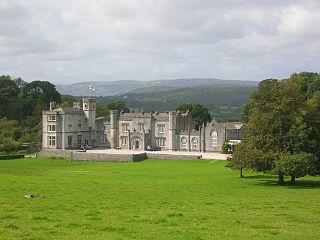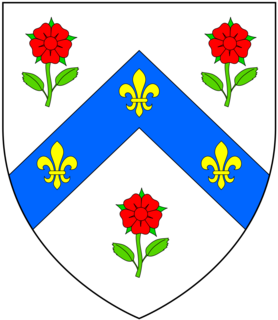
There have been six baronetcies created for persons with the surname Smyth, two in the Baronetage of England, one in the Baronetage of Great Britain, one in the Baronetage of Ireland and two in the Baronetage of the United Kingdom. One creation is extant as of 2010.

There have been two Baronetcies created for persons with the surname Austen, one in the Baronetage of England and one in the Baronetage of Great Britain. Both creations are extinct.

There have been six baronetcies created for persons with the surname Middleton, four in the Baronetage of England, one in the Baronetage of Great Britain and one in the Baronetage of the United Kingdom. One creation is extant as of 2008.
Sir George Fletcher, 2nd Baronet was an English politician who sat in the House of Commons at various times between 1661 and 1700.
There have been nine baronetcies created for persons with the surname Lloyd, three in the Baronetage of England, three in the Baronetage of Great Britain and three in the Baronetage of the United Kingdom. Two of the creations are extant as of 2010.

The Samwell Baronetcy, of Upton in the County of Northampton, was a title in the Baronetage of England. It was created on 22 December 1675 Thomas Samwell, later Member of Parliament for Northamptonshire and Northampton. He was the great-grandson of Sir William Samwell, Auditor of the Exchequer to Queen Elizabeth I of England. The second Baronet sat as Member of Parliament for Coventry. On the death of the fourth Baronet in 1789, the title became extinct.

There have been four baronetcies created for persons with the surname Hope, three in the Baronetage of Nova Scotia and one in the Baronetage of the United Kingdom. As of 2010 one creation is extant, one dormant and two extinct.
There have been three baronetcies created for persons with the surname Newman, one in the Baronetage of England and two in the Baronetage of the United Kingdom. Two of the creations are extant as of 2007.
Three baronetcies were created for persons with the surname D'Oyly, two in the Baronetage of England and one in the Baronetage of the United Kingdom. One creation is extant as of 2008.

There have been three Baronetcies created for persons with the surname Seymour, two in the Baronetage of England and one in the Baronetage of the United Kingdom. One creation is extant as of 2008.
There have been three baronetcies created for persons with the surname Cooke, two in the Baronetage of England and one in the Baronetage of Ireland. One creation is extant as of 2013.
There have been two baronetcies created for persons with the surname Yelverton, both in the Baronetage of England.
There have been five baronetcies created for members of Clan Ramsay, four in the Baronetage of Nova Scotia and one in the Baronetage of the United Kingdom. The baronetcy in the Baronetage of the United Kingdom is extant as of 2021.

There have been three baronetcies created for members of the Dixwell family, all of whom are descended from Charles Dixwell of Coton House, near Churchover, Warwickshire. All three baronetcies are extinct.

There have been three baronetcies, all in the Baronetage of England, created for members of the Spencer family, both for descendants of two younger sons of Sir John Spencer (1524–1586) of Althorp, Northamptonshire:

There have been four baronetcies created for persons with the surname Cope.
Sir John Baker, 2nd Baronet was an English politician who sat in the House of Commons of England in 1640. He supported the Royalist side in the English Civil War.
Sir Samuel Grimston, 3rd Baronet of Gorhambury House, Hertfordshire was an English politician.
Sir George Warburton, 3rd Baronet (1675–1743) was an English politician who sat in the House of Commons between 1702 and 1722.

The Blount Baronetcy, of Tittenhanger in the County of Hertford, was created in the Baronetage of England on 27 January 1680 for Thomas Pope Blount. In the 16th century Elizabeth Blount, daughter of Sir Walter Blount of Blount Hall, Staffordshire, married Sir Thomas Pope of Tittenhanger, Herefordshire. Her nephew Sir Thomas Pope Blount inherited the estate at Tittenhanger on her death. The first Baronet was the grandson of Sir Thomas and son of the traveller Sir Henry Blount. He represented St Albans and Hertfordshire in the House of Commons. The title became extinct on the death of his grandson, the third Baronet, in 1757.










